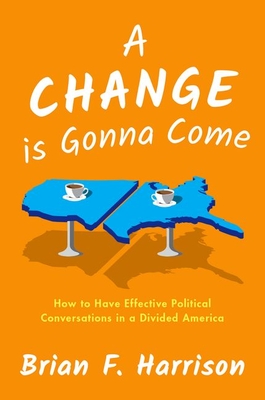 A Change is Gonna Come: How to Have Effective Political Conversations in a Divided America
A Change is Gonna Come: How to Have Effective Political Conversations in a Divided America
by Brian F. Harrison
Oxford U Press. 208 page, $29.95
There couldn’t be a better time for Brian Harrison’s book than an election year in which the country is more polarized than ever. Harrison, a gay man who holds a doctorate in political science, is now a progressive, but he grew up with conservative parents and served in a Republican administration—experiences that provided important insights on how to communicate with people holding different political views. He tries to account for the deep divisions in American politics with reference to Robert Plutchik’s psycho-evolutionary theory of emotion, social identity theory, and an approach known as shared identity priming. He addresses such hot-button issues as LGBT rights, universal healthcare, and climate change to illustrate his thesis.
As a “how to” book, the goal is to increase readers’ empathy for the “other side” while providing strategies for lowering the emotional temperature of the dialog. Part of it is a matter of managing your expectations. If you’re hoping to change your Uncle Harry’s mind, you’re probably aiming too high. Still, the solution is not just to “agree to disagree.” The aim should be to work toward some shared goals or principles that you can agree on before getting bogged down on the means to an end, which is where the disagreements tend to arise.
Stephen Hemrick







